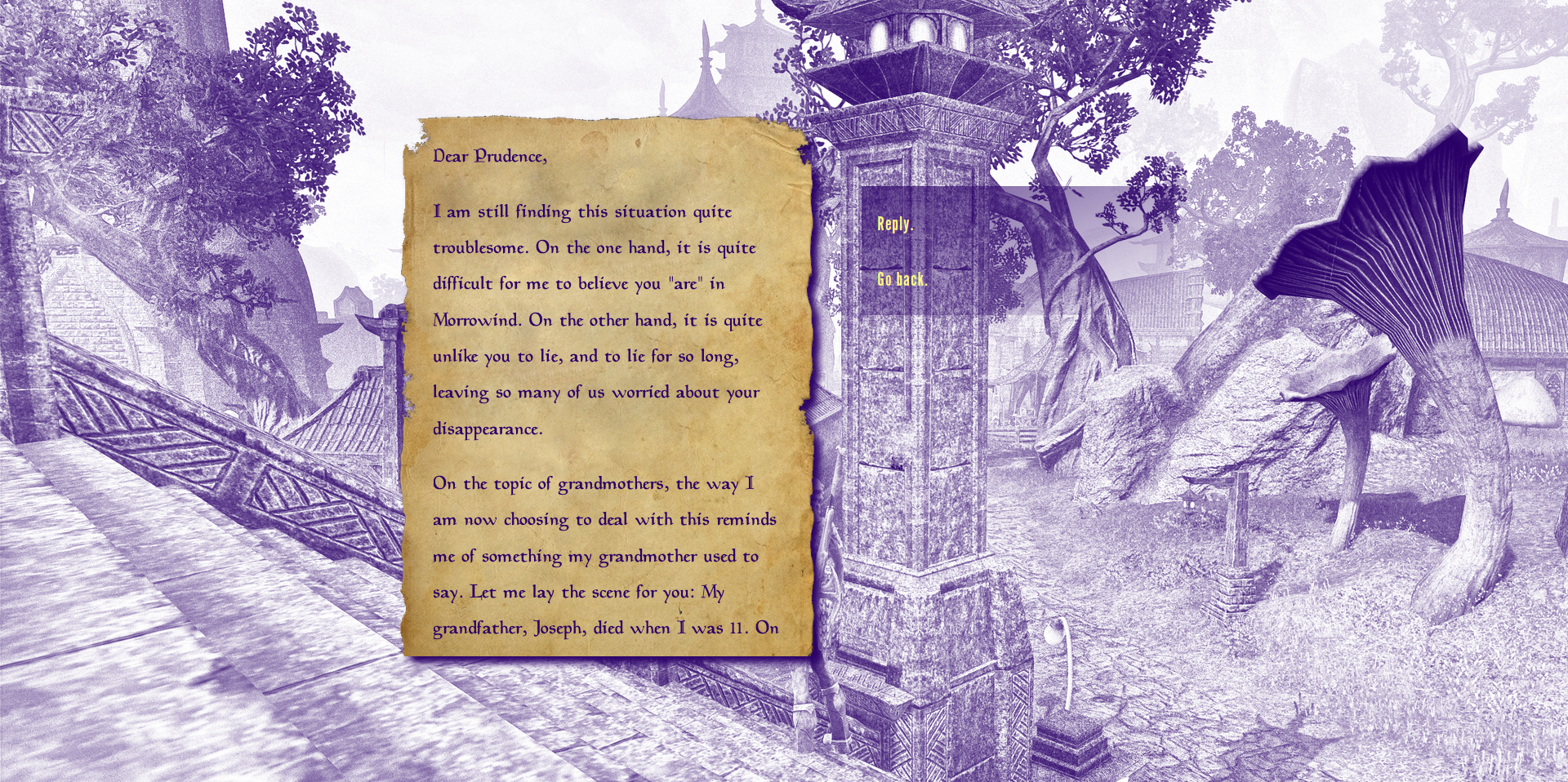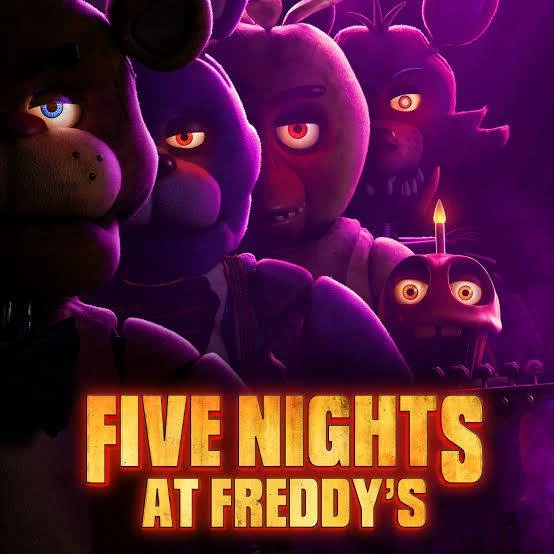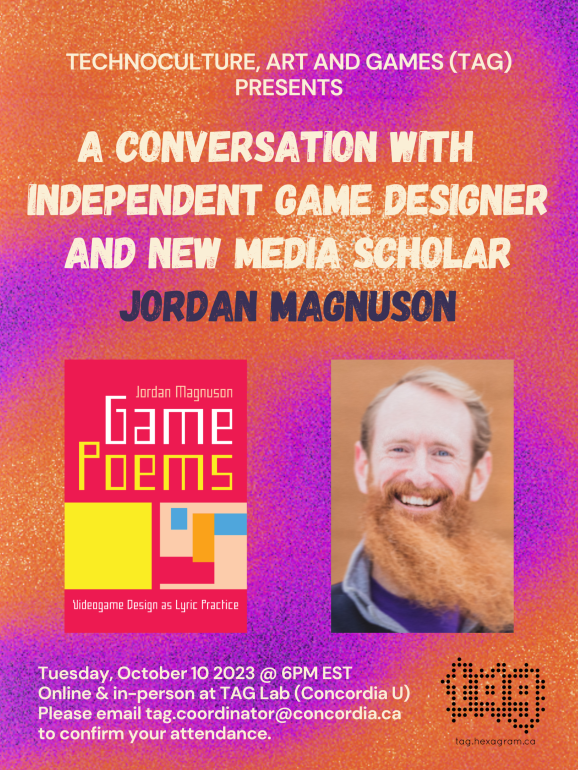TAG Calendar of Events

Video Game Fanfiction Creative Writing Workshop with Lídia Pereira
Videogames create worlds. Often, those worlds mirror our own, reproducing certain ideals and values as norm through their narrative, game play, design, etc. This session begins with an invitation to the participants to critically consider those worlds, identifying the key points and elements through which specific videogames circulate political, cultural and social values. How do the games we play every day vehiculate ideology? Using this knowledge, participants are then invited to intervene upon these videogame worlds through the writing, drawing, collaging, etc. of fan fictions, using the original text to re-construct these worlds or reveal crucial aspects they might be hiding in plain sight. At the end of the session, participants will have begun to create a narrative with their interventions upon these universes and the results may be as diverse as creative writing, the generation of new games in the form of text-based adventures, comics, mini-graphic novels, etc.
Requirements: Please choose a videogame you know well ahead of the session. To participate please send an email to tag.coordinator@concordia.ca with the subject line ‘Fanfiction Creative Writing Workshop.’
Lídia Pereira (PT) studied at the Piet Zwart Institute in Rotterdam (MA Media Design and Communication) and at the Faculty of Fine Arts of the University of Porto (BA Communication Design). Her practice bridges the fields of graphic design, art, digital media and infrastructure, critical theory, and publishing. In 2015, she founded the Pervasive Labour Union zine, a semi-regular publication in which contributors reflect on topics relating to labour on corporate social networks, algorithmic governance, and alternative digital infrastructures. Currently, she is a PhD candidate at the PhDArts programme, a collaboration between the Leiden University and the Royal Academy of Art in The Hague, where she is investigating videogames in the context of art education as a site of struggle against hegemonic discourse.
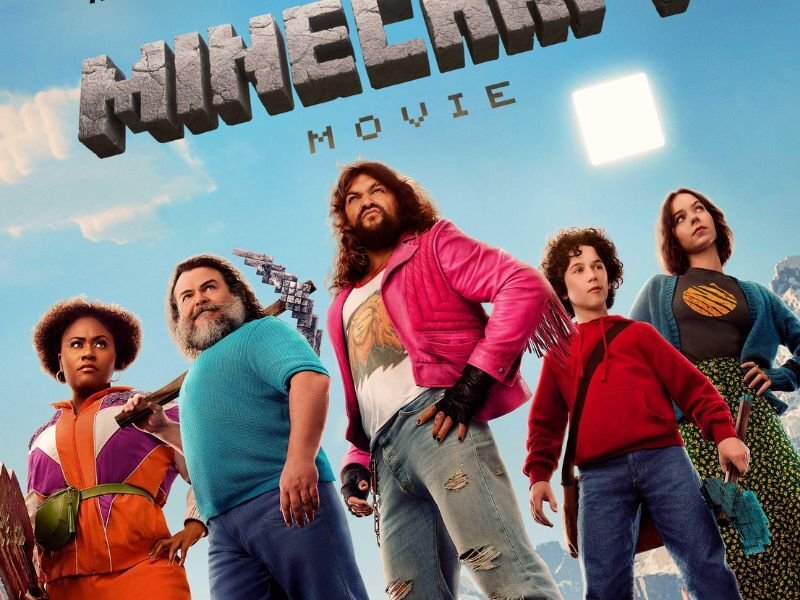
TAG Critical Watch Series Year 2 - The Minecraft Movie
Cinema. Has. Returned. Join us on Wednesday March 25th at 5:30 for a critical viewing and discussion of the new paradigm of game to screen adaptations: The Minecraft Movie. While not solar powered, staring at the screen displaying this movie for too long may certainly produce a result. My understanding is there is some kind of chicken in this film. As always, this is held in the Fine Arts screening room, EV 10.525.
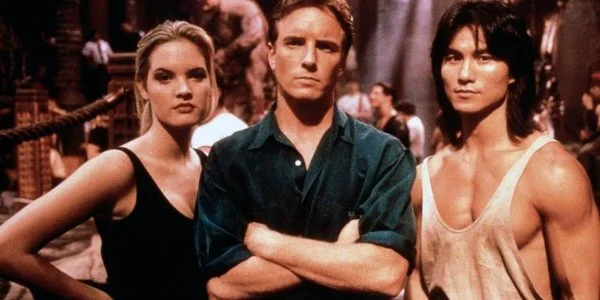
TAG Critical Watch Series Year 2 - Mortal Kombat (1995)
We end the year of TAG critical watch events with a Paul Anderson’s (not the one you think) 1995 classic, Mortal Kombat. While the Oscars that year completely ignored Mortal Kombat, awarding Babe (that’s the talking pig movie for those of you who weren’t around) for Best Visual Effects, Mortal Kombat was out there doing the real work. But where is Babe now? At a time when Mortal Kombat has multiple follow-up films and over two dozen games, the pig is nowhere to be found. Did this film play a role in the death of Babe? Can we credit some of the longevity of the Mortal Kombat franchise to this dynamic piece of media? All these questions and more are up for discussion as we celebrate the end of the term with a pigless tournament for the soul of Earthrealm.

CGSA: The Conference of the Canadian Game Studies Association, 2026
We’re capping off a trilogy of CGSA hosting this year at TAG. Join us one more time for four days of total nonstop game studies conferencing!!
This year’s conference theme is “On Repeat”. Beyond the Montreal “threepeat,” this theme also references the many ways games, players, and game studies are shaped by returns, loops, cycles, respawns, and replays.
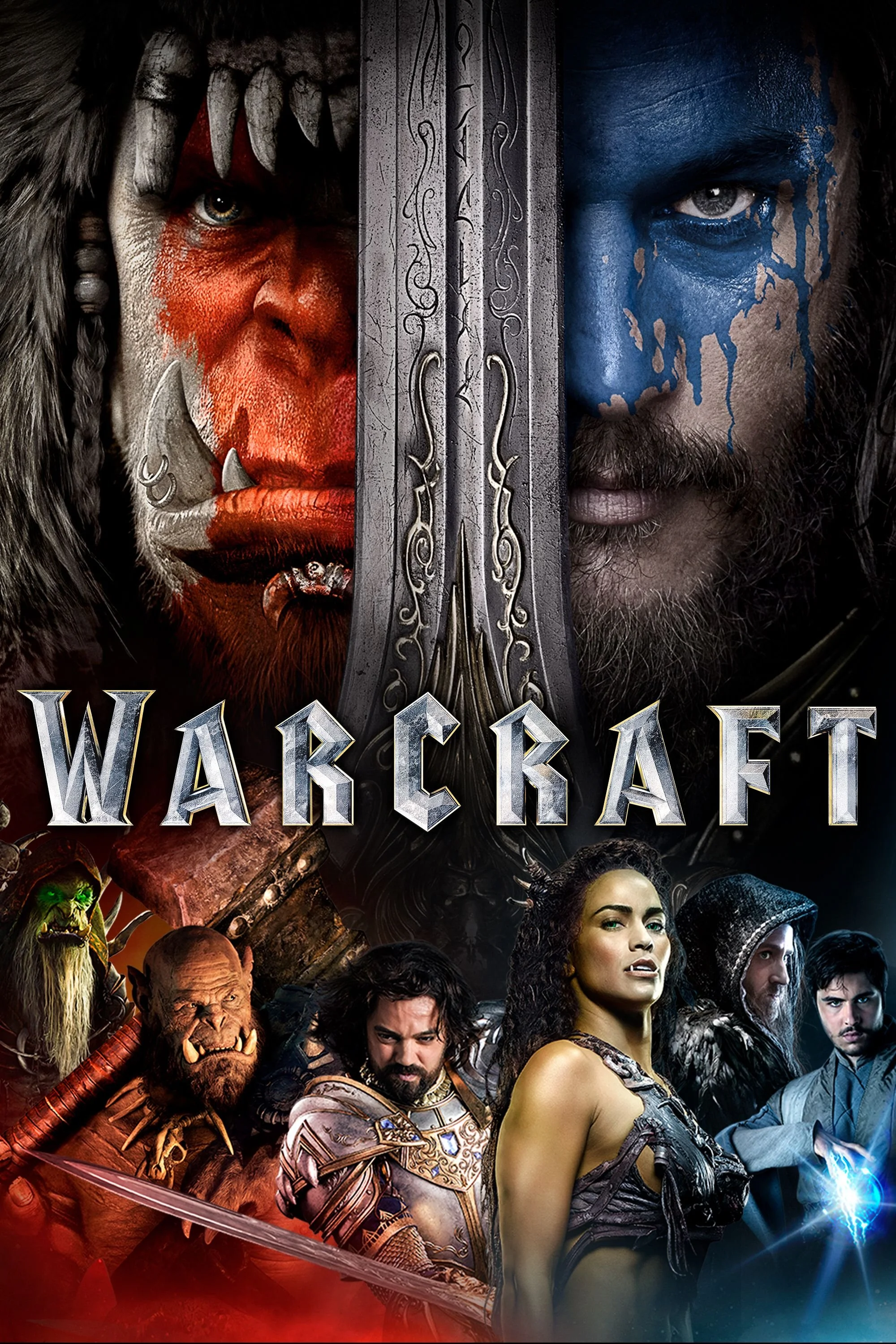
TAG Critical Watch Series Year 2 - The Warcraft Movie
Now you might be thinking that this movie looks terrible, and it is entirely possible that you’re right, but did you know this is the 4th highest grossing video game film of all time? Nostalgia for Azeroth is one hell of a drug. Join us on Wednesday February 18th to see legendary viking Ragnar Lothbrok battle some Orcs for the future of Azeroth in front of a green screen to the tune of 440 million gold pieces. The magic in this movie does look pretty cool though! As always, a discussion will follow the film screening so we can break down everything we’ll witness here.
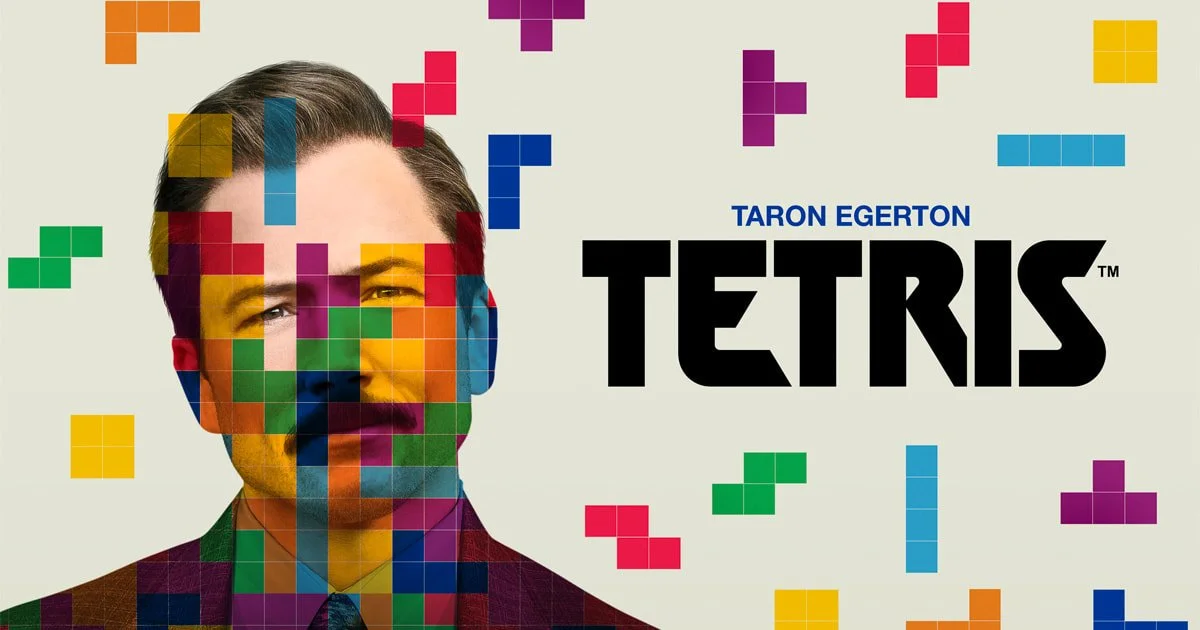
TAG Critical Watch Series Year 2 - Tetris
Have you ever wanted to see the dramatized interiority of a tetromino? Well too bad, because this installment of the TAG Critical Watch Series features Taron Egerton playing a human being who really wants that good Tetris. Would this have been better if all the actors were playing blocks limited to horizontal movement while on a constant downward trajectory? These questions and more will be up for discussion as we critically watch Tetris on Wednesday January 28th, in the Fine Arts screening room, EV 10.525.
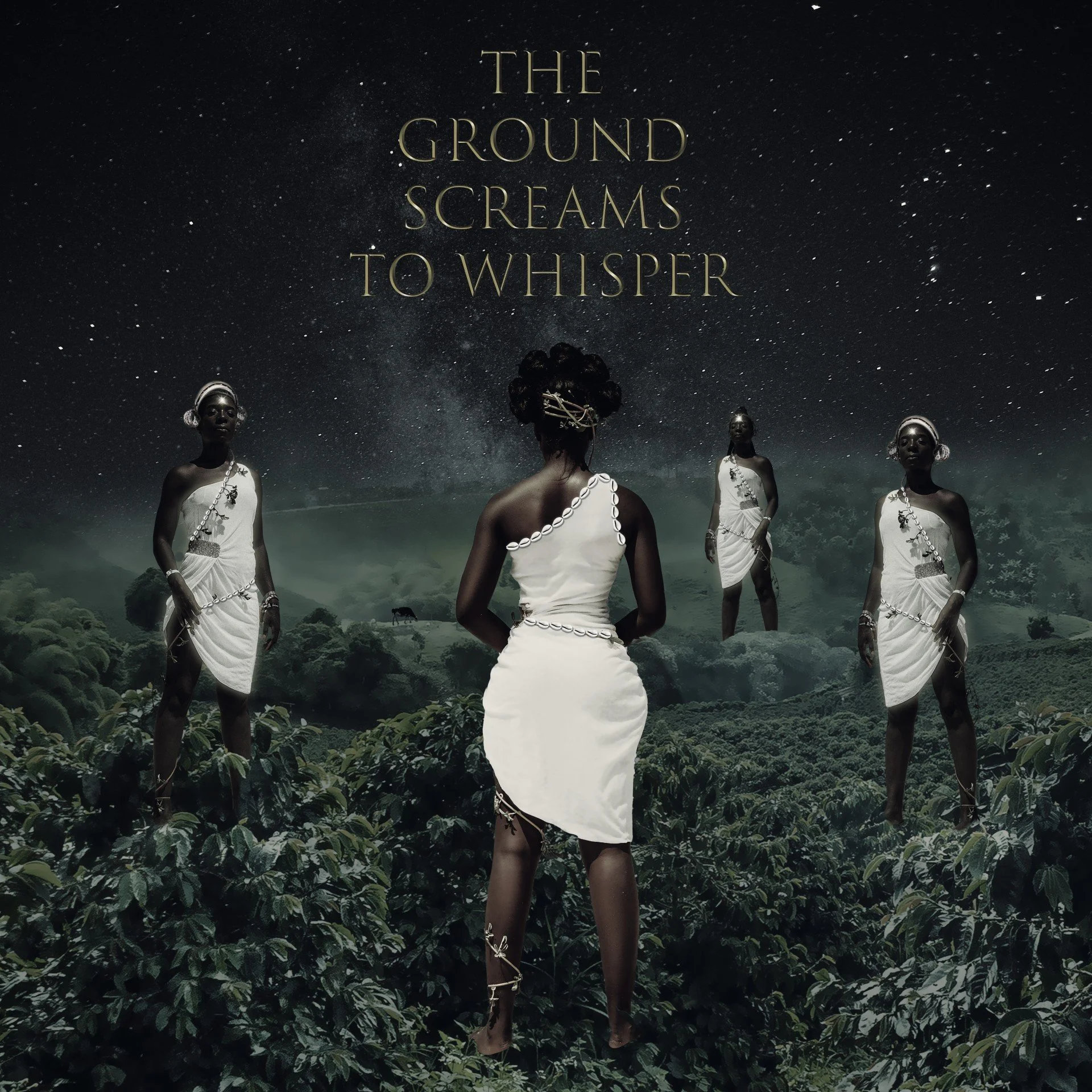
The Ground Screams to Whisper Residency
The Ground Screams To Whisper is an experimental, Afro-Gothic and Afrosurrealist immersive enigma poem, a creative polyphonous distillation of healing that reclaims and reimagines silenced histories through speculative world-building, cultural cosmologies, and sensory storytelling.
Drawing on the silence of colonial archives surrounding Agĩkũyũ women’s resistance during British occupation in Kenya, the work becomes a form of counter-history and speculation—inviting audiences to engage with erased memory through participation, ritual, and ancestral connection.
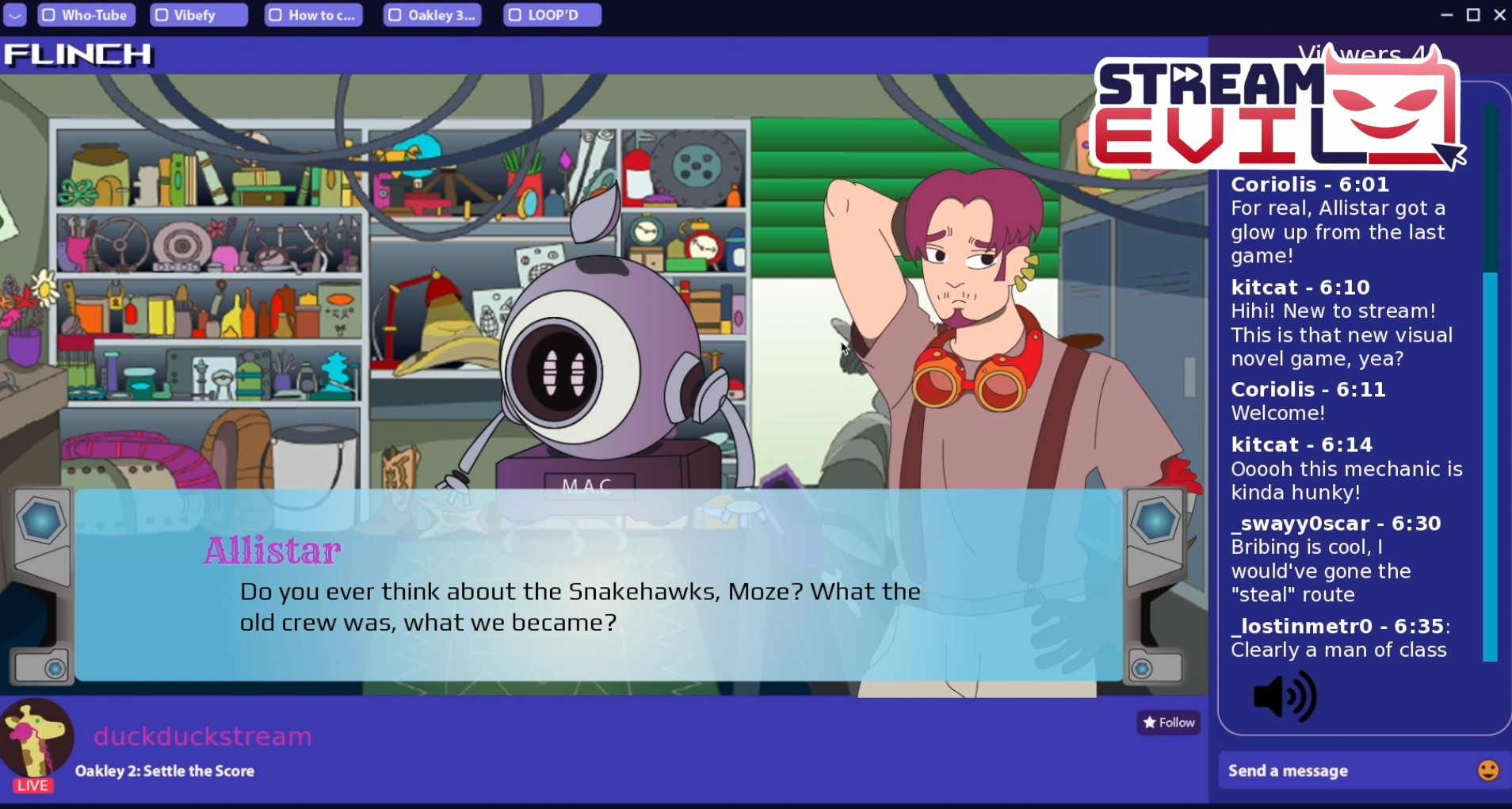
Stream Evil Launch Party
After captivating a bigger audience than normal when you accidentally kill the wrong character on stream, you discover an opportune strategy to grow your following: play EVIL to appeal to a wider audience.
Stream Evil is a research-creation project funded by SSHRC and the mLab that investigates tandem play: playing single-player games with multiple people. Research into tandem play shows that players often make different choices, take bigger risks, and/or lean into spectacle when playing together. Consequently, Stream Evil is a game developed to explore how audience feedback can shape moral decision-making during gameplay.
The team, Josh Spatzner, Jules Maier-Zucchino, Justin Roberts, Mia Consalvo, and Beck de Heuvel, have been working on this project for two years and are excited to finally share it with fellow TAG members! Please join us for a launch party in which we will finally publish the game and have it available for members at TAG to play it.
Join as Friday January 16th at 3:30 across from TAG in the Milieux Atelier (EV 11.425) as we celebrate the launch of Stream Evil!

TAG Critical Watch Series Year 2 - Sonic The Hedgehog II
Gotta go faster. Back by popular demand, we have Sonic the Hedgehog 2, a film that will surely deliver on the deep and winding threads established in the first film. Will Sonic continue to run? Will Tails have tails? Join us for the answer to these pressing questions and more during this installment of the TAG Critical Watch Series on Thursday December 11th, in the Fine Arts screening room, EV 10.525.

Guest Talk: Sara Grimes - Parasocial Gameworlds: Mapping Children’s Digital Play with Friends, Influencers, and AI NPCs.
Speaker Bio: Sara M. Grimes is the Wolfe Chair in Scientific and Technological Literacy and a Full Professor in the Department of Art History and Communication Studies at McGill University. She is the Director and Founder of the Kids Play Tech Lab, and Principal Investigator of the SSHRC-funded Children and Age-Appropriate Game Design Project. Her research and teaching are centered in the areas of children’s digital media culture(s) and children’s rights in the digital environment, with a focus on games. Her award-winning book, Digital Playgrounds: The Hidden Politics of Children’s Online Play Spaces, Virtual Worlds, and Connected Games, was published by the University of Toronto Press in 2021. She is currently working on a new book, Kidfluenced, under contract with the University of California Press, about children as creators of digital games, media and other content.
Location: TAG

TAG Critical Watch Series Year 2 - The Wizard
It’s 1989, the era of the Pinball Wizard has ended and a new hero emerges to face the challenge of a lifetime: Super Mario 3. Don your finest Power Glove and join us on Thursday November 13th at 5:30pm in the Fine Arts screening room, EV 10.525 for the TAG Critical Watch Party for The Wizard.

Institute Day - TAG Open House
The Technoculture, Art, and Games Research Centre is holding an open house at Concordia University. Come check out the lab, meet our members, and see some of the game research and creative projects that happen at TAG.

The TAG Annual General Meeting
We’ll see you on October 30th at 4pm in EV 11.435 for TAG’s Annual General Meeting. This is your chance to meet other TAG members, learn about all of TAG’s happenings this year, and to make yourself known to the TAG community.

TAG Critical Watch Series Year 2 - Five Nights at Freddy’s
Are you familiar with scares? How about bears? Well as far as I know (which is not very far at all btw) this series puts scares and bears together in one gamey package! Can bear escape the scare? Can scare be bear? Find out the answer to these questions and more at the Five Nights at Freddy’s TAG Critical Watch Party on Thursday, October 23rd at 5:30pm in the Fine Arts screening room, EV 10.525. As always, a short discussion will follow the screening.
Seating is very limited, so if you wish to attend, please RSVP by sending an email directly to tag.coordinator@concordia.ca or by messaging Marc on the TAG Discord.

An Esoteric TTRPG History With Leonardo Abate, Michael Iantorno, and Marc Lajeunesse
Join Leonardo Abate, Michael Iantorno, and Marc Lajeunesse for a discussion about tabletop roleplaying games. We’ll look at exciting moments in the development of TTRPGs across time and place. Starting with a general overview of how TTRPGs developed in America, we’ll venture across the sea to look at the beautiful TTRPG coastline of Italy where in the 80s and 90s small but imaginative subcultures of TTRPG gaming developed independently, with games that were never translated to English. We’ll also discuss the development of the Open Gaming License and how it spawned subcultures of homebrew practices.

TAG Critical Watch Series Year 2 - Tron: Legacy
We’re starting off this year’s TAG Critical Watch Parties with Tron: Legacy. Have you wondered what it would be like to be trapped in a game when you’re dad is already trapped inside of that game? Of course you have! Tron: Legacy has answers to that age old question.
Join us for a screening of the film and a subsequent discussion on the themes, form, and legacy of Tron…..legacy.
Seating is limited and goes quickly. If you plan to attend please email tag.coordinator@concordia.ca with the subject line “Tron Critical Watch” to secure your seat as soon as possible.

CGSA at TAG, 2025 Edition
After a successful impromptu partnership in 2024, the Canadian Game Studies Association Conference is returning to TAG and Milieux from June 7th to 10th, 2025.
For capacity reasons, attendance for this event is limited to conference participants and current TAG members. The conference schedule and details about TAG member registration is forthcoming.

The Disco Elysium Roundtable
Join Dr. Carl Therrien, Dr. Mia Consalvo, Nathanaël Roussy, and Elizabeth Eraña for a roundtable discussion on Disco Elysium. Dark play, detective stories, and the inner reaches and turmoils of the human mind are all on the table for this discussion!

The TAG Critical Watch Series #6 - Jumanji
Join us for a screening and discussion of 1995's Jumanji, featuring Robin Williams, roll to move mechanics, and CGI jungle animals.
The TAG Critical Watch Series is an opportunity to reflect on how video games are adapted and represented across film. The film screening will be followed by a short discussion, which is then followed by a podcast recording with select members of the audience and/or our guests. March's film is the original Jumanji (1995).
Seating is limited. If you would like to reserve a place on the podcast for this month's film ahead of time, or if you would like to suggest films for future screenings, please contact the TAG coordinator at tag.coordinator@concordia.ca.

Guest Talk: Extreme Design with Evgeni Puzankov
Join us on March 14th for a talk on extreme design and game narrative with Evgeni Puzankov.
Evgeni Puzankov is a PhD student in the Department of Computational Art at York University. He is a game maker and narrative designer with over 15 years of experience, mostly specializing in weird, absurd, and political games. Evgeni has been teaching narrative design indepently for five years, and is a curator and producer of the indie micro-fund called ‘Briefs,’ presented by the Austrian art collective Gold Extra.

The TAG Critical Watch Series #5 - Assassin's Creed (2016)
Join us for a screening and discussion of 2016's Assassin's Creed. No amount of hay can hide this film from our critical eyes!
The TAG Critical Watch Series is an opportunity to reflect on how video games are adapted and represented across film. The film screening will be followed by a short discussion, which is then followed by a podcast recording with select members of the audience and/or our guests. February's film (which is being screened in March to account for the break!) is Assassin's Creed (2016).
Seating is limited. If you would like to reserve a place on the podcast for this month's film ahead of time, or if you would like to suggest films for future screenings, please contact the TAG coordinator at tag.coordinator@concordia.ca.

Book Launch - Streaming by the Rest of Us: Microstreaming on Twitch
To celebrate the launch of Streaming by the Rest of Us: Microstreaming on Twitch, TAG hosts a conversation about streaming to no one on Thursday February 20th at 3pm.
An in-depth investigation of the Twitch streamers who make up the largest population on the platform: those streaming to small audiences or even no one.
The vast majority of people who stream themselves playing videogames online do so with few or no viewers. In Streaming by the Rest of Us, Mia Consalvo, Marc Lajeunesse, and Andrei Zanescu investigate who they are, why they do so, and why this form of leisure activity is important to understand. Unlike the esports athletes and streaming superstars who receive the lion's share of journalistic and academic attention, microstreamers are not in it for the money and barely have an audience. In this, the first book dedicated to the latter group, the authors gather interviews from dozens of microstreamers from 2017 to 2019 to discuss their lives, struggles, hopes, and goals.
For readers interested in livestreaming, and Twitch in particular, the book rethinks the medium's history through accounts of the everyday uses of webcams, with particular attention to notions of liveness and authenticity. These two concepts have become calling cards for the videogame livestreaming platform and underlie streamer motivations, the construction of their practices (whether casual, serious, or anywhere in between), and the complex “metas” that take shape over time. The book also looks at the authors' own practices of livestreaming, focusing on what can be gained through experiencing the lived reality of the practice. Finally, the authors explain how Twitch's platform (studied from 2017–2023) informs how streamers structure their every day and how corporate ideologies bleed into real-world spaces like TwitchCon.

Talk: Visiting Researcher Robert Glashüttner Presents Pinball
Pinball is an archaic arcade game for some, a technical marvel for others, and a favorite pastime for more and more dedicated players. Little is commonly known about pinball except that it’s made up of big sturdy amusement machines where you shoot steel marbles with flippers up a tilted playfield. Both game culture communities as well as scholars tend to underestimate the finesse of playing and the design decisions behind developing physical pinball devices. Most importantly, it is a game of hybridization in different aspects: Pinball is physical and digital, retro and contemporary, mechanical and electronic, skill-based and chance-induced. Therefore it should be worth more attention. This talk gives an overview on why pinball research could be more than a side note within game studies.

The Games Institute ADE Speaker Series Talk: The Case for Paratopian Design with Rilla Khaled Watch Party
What if we could make complex social and cultural questions playable? And what if we could do so through interactions with familiar digital interfaces set in alternative presents and near futures? The work I will discuss sits at the intersection between the design traditions of speculative and critical design on the one hand, and the philosophies and best practices of game design, playful media and interaction design on the other.
All are welcome, and there will be snacks :).
No registration required for the watch party.
October 31st – 3:00 – 4:00pm
TAG Lab – EV 11.435
1455 de Maisonneuve Blvd, West

The Games Institute ADE Speaker Series Panel: Building Equitable and Sustainable Game Development Education
Join us at TAG for a remote watch party for this ADE Speaker Series Panel on Building Equitable and Sustainable Game Development Education.
With recent waves of layoffs, high-profile workplace harassment cases, and a notoriously short career length for gender minorities and people of colour, the transition of new workers into the game industry involves navigating a spate of barriers to equity and success that have been understudied in academic research. This panel talks about “The First Three Years”, an ongoing longitudinal study of graduates of game programs in Canada and the United States, following the journey of 207 students as they move into the game industry.
This event is part of the “ADE for Game Communities: Enculturing Anti-Racism, Decolonization, Equity, Diversity and Inclusion (ADE) in Games Research and Creation” series from the ADE Committee of the Games Institute, University of Waterloo, and is supported in part by funding from the Social Sciences and Humanities Research Council.
Speakers:
Kenzie Gordon is a PhD Candidate in Digital Humanities and Media & Cultural Studies at the University of Alberta. Her work examines gender and violence in video games and equity issues in the game industry.
Dr. Sean Gouglas is a Professor in Digital Humanities and Co-Director of the Certificate in Computer Game Development at the University of Alberta. He conducts research on university curriculum related to video game design and study, as well as the relationship between postsecondary institutions and the video game industry. He has consulted with government on tax and investment policy as it relates to video game production and has published reports for SSHRC and HEVGA on the state of the video game industry and higher education game programs.
Dr. Alison Harvey is Associate Professor in the Communications program at Glendon College, York University. Her research and teaching focuses on issues of inclusivity and accessibility in digital culture, with an emphasis on gender and labour in digital games. She is the author of Gender, Age, and Digital Games in the Domestic Context (2015, Routledge) and Feminist Media Studies (2019, Polity). Her work has also appeared in a range of interdisciplinary journals, including New Media & Society, Games & Culture, International Journal of Cultural Studies, Feminist Media Studies, Information, Communication & Society, Social Media & Society, and Studies in Social Justice.
Vishal Sooknananl is a PhD student at Western University in Industrial Organizational Psychology. Vishal studies issues of Equity, Diversity and Inclusion in the workplace with a focus on the lived experiences of marginalized and minoritized groups and subtle discrimination. This work has been focused on various workplace settings including the games industry as part of the First Three Years project. His work can be found on Scholarship@Western and https://igda.org/dss/.
Dr. Johanna Weststar is an Associate Professor in the DAN Department of Management and Organizational Studies at Western University and cross-appointed to I/O Psychology and the Department of Gender, Sexuality, and Women’s Studies. Johanna specializes in labour and employment relations with a focus on the video game industry where she is interested in issues of workplace citizenship, representation and unionization, working conditions and the labour process, project management and occupational identity. You can find her work at Scholarship@Western, igda.org/dss and GameQoL.
Dr. Jennifer Whitson (she/her) is an Associate Professor in Sociology & Legal Studies and at the Stratford School of Interaction Design and Business. She studies the “squishy” side of software development and has been conducting ethnographic fieldwork with game developers since 2012. You can find her work at: IndieInterfaces.com, first3yearsproject.com, and jenniferwhitson.com.
All are welcome, and there will be snacks :).
No registration required for the watch party.
Monday, October 23rd, 2023, 11:00am – 12:30pm.
TAG Lab – EV 11.435
1455 de Maisonneuve Blvd, West

A Conversation with Game Designer Jordan Magnuson
Join us next Tuesday, October 10 at 6 PM EST in-person at TAG or online (Zoom link to be shared closer to the date of the event).
We will be hearing from independent game designer and new media scholar Jordan Magnuson about his book “Game Poems: Videogame Design as Lyric Practice” which is available in open-access in so many formats.
From the publisher: Scholars, critics, and creators describe certain videogames as being “poetic,” yet what that means or why it matters is rarely discussed. In Game Poems: Videogame Design as Lyric Practice, independent game designer Jordan Magnuson explores the convergences between game making and lyric poetry and makes the surprising proposition that videogames can operate as a kind of poetry apart from any reliance on linguistic signs or symbols.
Jordan Magnuson will present his work to us for the first 45 minutes, followed by a Q&A session.

The Games Institute ADE Speaker Series Talk: Black Virtuality with A.M. Darke Watch Party
Across digital media, Black people are portrayed in ways that are derogatory and harmful – if we are depicted at all. The representation of afro-textured hair is noticeably limited, with options ranging from comically large afros, unstyled ‘dread’ locs, and misshapen cornrows. Through projects like ‘Ye or Nay?’ and the Open Source Afro Hair Library, artist A.M. Darke explores the consumption of Black bodies and the construction of a Black virtuality. In this talk, Darke shares a critical and liberatory approach for engaging marginalized communities in games and digital media.
All are welcome, and there will be snacks :).
No registration required for the watch party.
Monday, September 25th, 2023. 1:00pm – 2:00pm.
TAG Lab – EV 11.435
1455 de Maisonneuve Blvd, West

